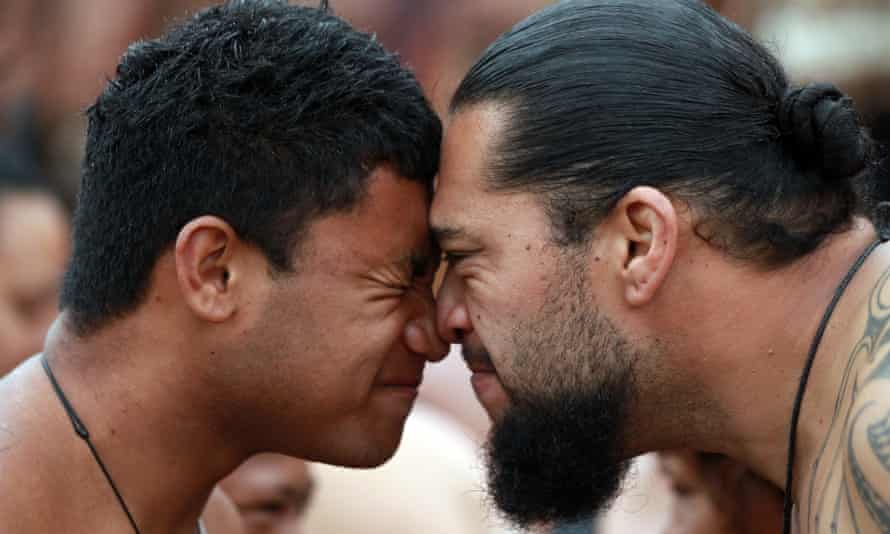AMāori doctor on the government’s immunisation implementation advisory group, Dr Rawiri Jansen, said recently that Māori would be prioritised in the Covid-19 vaccine roll-out. A predictable outcry ensued, with familiar protestations about “race-based policy” and convenient ignorance displayed about the other priority groups being discussed – the elderly, those with known risk factors, front-line workers.
New Zealand’s first Covid-19 community case in months was confirmed two weeks out from Waitangi Day. The new case is awkwardly located in Northland
This was compounded for Māori living in rural areas with the urban/rural healthcare provision inequity heaping on more risk. The community checkpoints have been a source of contention since they were first mooted – Māori are called vigilantes for using our limited resources to protect our communities, but those opposed offered little in the way of solutions about how we might effectively protect those communities instead.
This is a conundrum. On the one hand, people are unhappy that the government might consider acting in a way that is consistent with what was agreed to under Te Tiriti o Waitangi; exchange of governorship of the land in return for equal treatment of Māori. A vaccine implementation strategy that is compliant with the treaty would be one which takes into account the greater health vulnerabilities experienced by Māori.
On the other hand, people are unhappy that Māori might use our own initiative and act to protect ourselves. We’re not talking about violence or lawlessness. We’re talking about actions which protect vulnerable communities. What looks like manaakitanga to me (a complex principle of Māori customary behaviour which could include “kindness” as its most basic reading) looks like scary brown people on the highways armed with fluorescent vests to others. Interestingly, there are no complaints from these quarters when iwi use their resources to provide disaster relief services such as in the wake of the Christchurch and Kaikoura earthquakes, and the Napier floods.
If we can’t protect ourselves, and we can’t expect the government to act in a way that protects us, what are we left with? There’s a spectrum of perspectives on Māori health among New Zealanders which traverses equity-based activism to benign disinterest to outright racism.
Last month ex-cabinet minister and former mayor of our largest city John Banks responded to a talkback caller on his radio show who said Māori were “genetically predisposed to crime, alcohol and under performance educationally” by saying “just a minute, your children need to get used to their stone-age culture because if their stone-age culture doesn’t change, these people will come through your bathroom window.” This attitude provides an insight into the callous disregard for Māori health – despite bearing no evidence, some still hold to the bogus “science” of colonialism which claims colonised peoples to be inferior, therefore barely worth consideration of treatment equal to the colonisers. It’s easy to disregard someone else’s suffering if you can blame them for it.
Epidemiology is having its moment in the sun. Newsreaders and reporters had to learn how to get their tongues around the word “epidemiologically” as we sought out the purveyors of this previously underappreciated branch of medical science to explain how and why Covid-19 was changing the world.
At the medical school here in Auckland we had the basics of epidemiology drilled into us by Professor Rod Jackson,with emphasis on the differences between disease incidence and prevalence and how to assess dodgy research. It sounded great at the time, evidence-based medicine in its purest form. But there’s a misconception that, if we just had enough evidence, we would act on it. Clearly that’s not true, because we’ve been counting, quantifying, qualifying the disparities in Māori health outcomes for decades and the barrier isn’t the evidence – it’s people and politics.
I was asked to comment on progress on Māori health issues during Jacinda Ardern’s leadership for this article. There isn’t much I can say on that front at the moment, but there are many urgent priorities that could be addressed during this term if the government is willing to spend some of its political capital on those who need it most.
These issues were urgent before Covid-19 but they are verging on desperate now, as the health system attempts to deal with the flow-on effects of lockdown. We’re fortunate that we have experienced only short periods of lockdown compared with other countries otherwise these effects would be a lot worse, and long-lasting. A handful of examples include delays to screening programmes for cancers, pressure on waitlists for elective surgery, disruption of the management of chronic conditions, exacerbation of existing delays to mental health treatment services.
I hope Jansen, from theimmunisation advisory group, is right in saying that priority access for the vaccine is being considered, as that would not only be the fairest and most equitable thing to do, but also it would signal a commitment from the government that they want to do more than just wring their hands about the life expectancy gap and unfair burden of disease for Māori.

